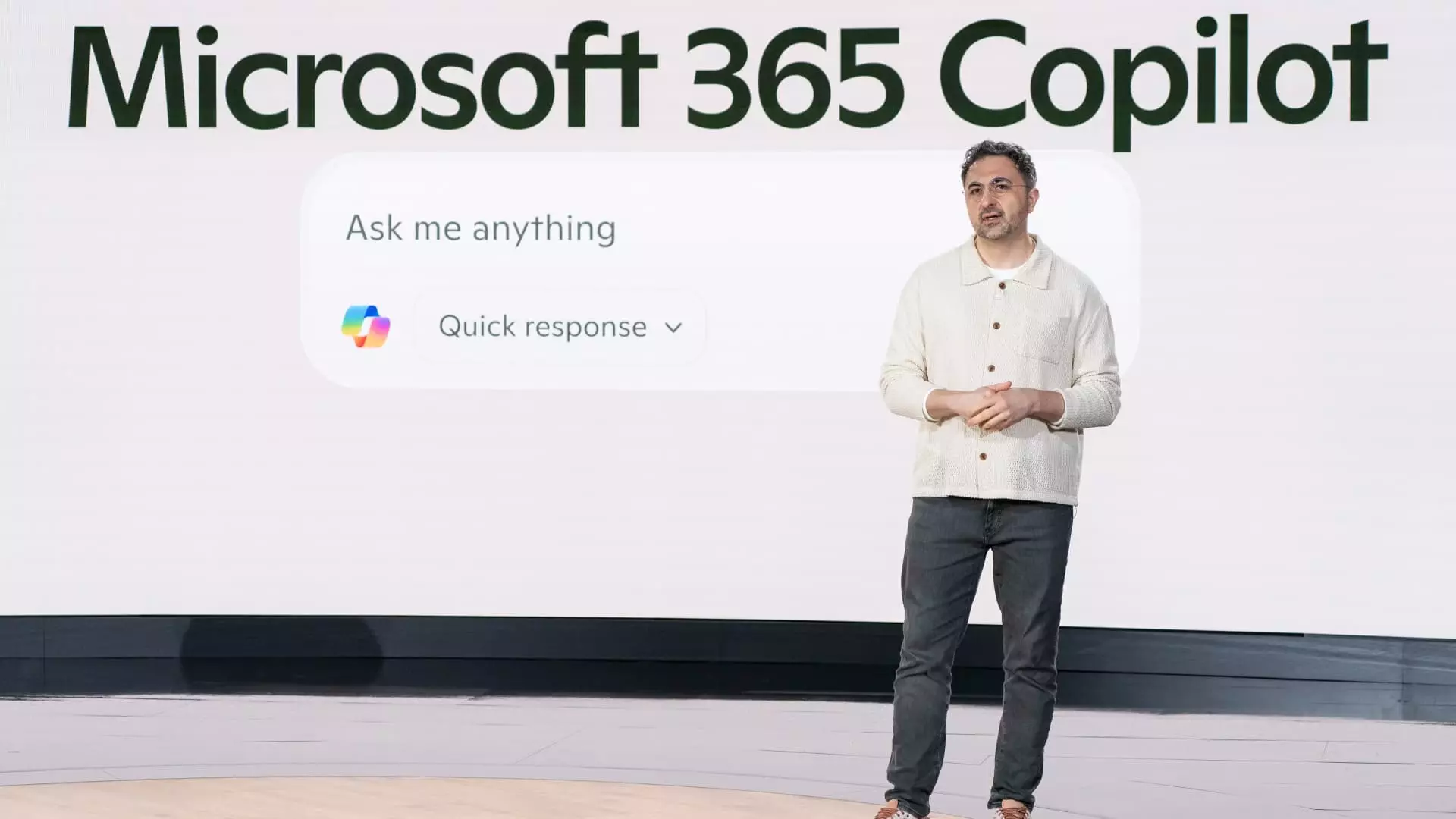As the global race towards artificial intelligence (AI) supremacy accelerates, major tech players strategize differently to stay ahead or keep pace. Microsoft, a company synonymous with technological advancement, has opted for an unorthodox approach by not rushing to harness its extensive Nvidia graphics processing units (GPUs) for cutting-edge AI modeling. This decision, articulated by Mustafa Suleyman, Microsoft’s AI CEO, hinges not solely on a lack of ambition but rather on a well-considered strategy aimed at maximizing efficiency and cost-effectiveness. The burgeoning alternative landscape of AI tools and the associated costs of leading the pack invite companies to reconsider their trajectories.
Indeed, the trend of “catching up” appears to be a strategic maneuver facilitating lower financial risks and fostering targeted application development, which Suleyman describes as operating “off-frontier.” By analyzing AI models that are a few months behind but still highly effective, Microsoft positions itself to concentrate resources on solving specific use cases rather than engaging in the race to produce the most advanced but resource-intensive models. This paradigm shift underscores a reality within the industry: sometimes waiting yields greater dividends than rushing toward immediacy.
The Relationship Dynamics: Microsoft and OpenAI
Central to Microsoft’s strategic AI efforts is its deep-seated alliance with OpenAI, a partnership that emerged after the launch of the popular ChatGPT chatbot. With an investment totaling a staggering $13.75 billion, Microsoft has leveraged OpenAI’s innovative models to elevate its suite of products, including Bing and Windows. However, the bond is evolving amid the shifting sands of AI competition.
The recent revelation that OpenAI has begun collaborating with Oracle for the ambitious Stargate project—a $500 billion endeavor—adds a layer of complexity to the Microsoft-OpenAI relationship. This shift raises questions about self-sufficiency for Microsoft. Suleyman emphasized the mission-critical nature of developing an internal AI capability, pointing out that while long-term strategies may rely on collaborations, autonomy in AI development is pivotal for Microsoft’s future. This approach reflects a growing recognition that technology partnerships must also evolve into self-reliance for sustained success.
Innovation Through Incrementalism: Copilot’s Memory Feature
A standout feature of Microsoft’s AI toolkit is Copilot, which is set to gain an innovative memory capability. This functionality allows the AI to remember key information about users, ultimately delivering tailored interactions based on past experiences. Introducing this feature mirrors the adaptive nature of OpenAI’s ChatGPT, which has captivated millions of users with its intricate language processing and reasoning abilities.
By adopting the “Think Deeper” concept shortly after OpenAI’s memory capability, Microsoft not only reinforces its competitive edge but also highlights its dedication to gradual improvement over groundbreaking leaps. Rather than seeking to leapfrog competitors, the focus appears resolutely on enhancing performance and user experience, a philosophy that may prove to be more sustainable in the long term.
The Future of AI at Microsoft: Balancing Act
Microsoft’s ambitions are not unfettered. The company continues to tackle the intricacies of the AI landscape with caution and discernment. Suleyman’s assertion that their goal isn’t necessarily to produce the leading AI model but to prioritize robust applications with lasting impact reflects a mature understanding of market dynamics. An AI race characterized by rapid development often leads to unsustainable practices and inflated costs, providing Microsoft a golden opportunity to emerge as a thoughtful leader.
While drawing from a significant compute capability and harnessing a talented AI team, Microsoft is clearly infusing its development processes with a dose of strategic patience. The pathway outlined by Suleyman appears to advocate for a balanced blend of innovation and restraint, offering a stark contrast to the overwhelming pressure many companies feel to maintain a leadership position through relentless competition.
In this evolving arena, companies such as Microsoft, anchored by thoughtful strategic decisions, have the potential to become not merely players, but strategically positioned leaders, embracing a future where AI is both potent and pragmatic.

